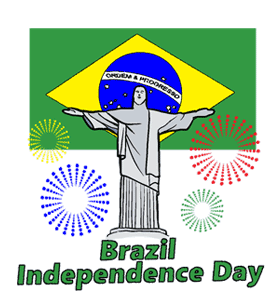Brazil Independence Day
Brazil Independence Day Quick Facts
| HashtagsCompiled on | #Brazil |
|---|---|
| Related Hashtags | #Brazil |
| 2024 Date | September 7, 2024 |
| 2025 Date | September 7, 2025 |
2024 Holidays & Dates - US
| US & Common Holidays | ||
| Misc. & Int'l. Observancesℹ | ||
| Christian Holidays | ||
| Jewish Holidays | ||
| Muslim Holidays |
|
|
›
|
|
